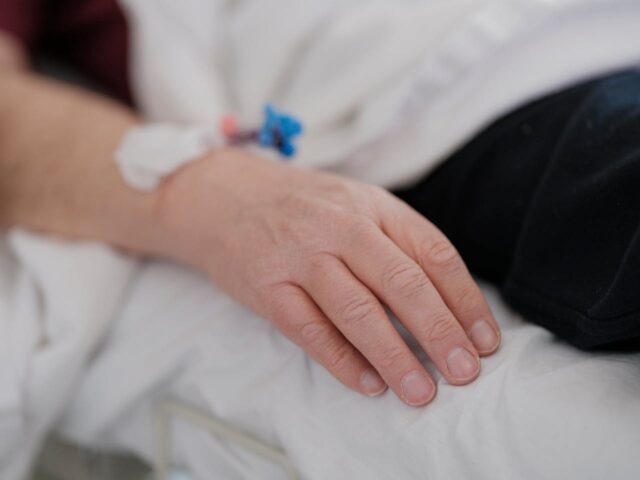Houston Wrongful Death Lawyer
Every day, Houstonians are injured or even killed as a result of accidents that are not their fault. A person who is behaving carefully and obeying the law can still be harmed in a car crash, motorcycle accident, or workplace incident, forever affecting their family and loved ones.
Surviving family members are left with devastating emotional loss and also with significant impacts from lost income, medical and funeral expenses, and other changes to the family’s income and finances.
Need a Wrongful Death Lawyer in Houston?
If you have lost a loved one due to the negligence of another person, you should discuss your case with a Houston wrongful death lawyer. Some of the most common causes of a wrongful death case include:
- Car and truck accidents
- Defective products
- Medical negligence and malpractice
- Workplace injuries
- Construction accidents
- Medication errors
- Faulty equipment
- Criminal acts
- Motorcycle accidents
- Bicycle and pedestrian accidents
- Exposure to hazardous substances or conditions
A wrongful death lawsuit is a civil action with independent processes from a criminal action. A criminal investigation is intended to determine whether someone is guilty of a crime and hold them accountable for breaking the law. A criminal case may result in fines, imprisonment, and other penalties.
That said, a criminal case is not intended to help a family recover financially from the loss of a loved one. Fines and fees paid in a criminal case are not returned to the family; a wrongful death lawsuit is a separate process that holds the guilty person financially accountable for their negligence and helps loved ones ease their financial losses as a result of the death.
What Constitutes Wrongful Death in Houston?
A wrongful death claim consists of four equally important parts. Without all these elements, you cannot prove a wrongful death claim. The four components of a wrongful death case are:
Negligence
Negligence is the failure to take reasonable care or precautions to prevent an accident or injury. When death is caused by a deliberate act, the intent to do harm can substitute for negligence. The specific standard of negligence depends on the circumstances of your case, but some common examples of negligence include:
- Driving recklessly or aggressively or driving without reasonable care for the road conditions, especially in a potentially dangerous large vehicle like a truck
- Medical negligence may include failure to apply a reasonable standard of care for the patient’s condition, misdiagnosis or delayed diagnosis, medication errors, surgical errors, birth injuries, nursing home neglect, and more.
- Workplace negligence may include failure to provide a safe working environment or safety equipment, failure to provide adequate safety training or instruction, failure to regard hazards and risks in the workplace, and more.
- Product liability may include defective or hazardous products, failure to provide adequate safety warnings or proper usage instructions, inadequate safety testing, and similar situations.
Death of a Person
When negligence results in death, you can sue for wrongful death. If negligence results in injury, you can sue for personal injury instead.
Causation
The death must be the direct result of the person’s negligence. For example, if a reckless driver hits and kills a pedestrian, they are directly responsible for the death. If a patient has a terminal illness and also suffers from a medication error, the medical error may not be directly responsible for the death.
Damages
The death must result in substantial losses in order to justify the lawsuit. These losses may be emotional rather than financial. For example, you can sue for the wrongful death of a minor child, even when the child did not contribute financially to the household. In the case of an older adult with an existing terminal illness, if the negligent act did not cause exceptional pain and suffering, there may not be significant damages.
Every case is different, and it is important to discuss your situation with an experienced Houston wrongful death lawyer in order to determine whether you have a case.
What Damages Can Be Recovered?
In Texas, you can recover economic and non-economic damages in a wrongful death lawsuit. Some of the possible damages you may recover include:
- Lost earning capacity or loss of household income
- Lost inheritance, including what the deceased person might have earned and left to their family if they had not died prematurely
- Lost care, services, advice, and support that the deceased person would have provided to their family
- Lost love, companionship, and comfort that the deceased person would have provided for their family
- Mental and emotional pain and suffering as a result of the death
- The cost of mental health and emotional therapies and support for surviving family members
In addition, if a case involves gross negligence, a judge may award punitive damages. Punitive damages are not designed to compensate the family for their loss but are an additional award to punish the negligent party and set an example that will deter others from the same behavior.
What is the Difference Between Wrongful Death and a Survival Action?
Texas law allows family members and loved ones to pursue both a wrongful death claim and a survival action. A survival action is the personal injury claim that a person would have had if they had lived: their claim to damages ‘survives’ their death and can be pursued by family members or the executor of their estate. A survival action allows loved ones to sue for damages related to the injury and death, including:
- The costs of medical care and therapies received before death
- The costs of the loved one’s pain and suffering before death
- Lost wages during the time that the person was injured and unable to work
- Funeral and burial costs
Survival action suits and wrongful death suits are separate actions that can be pursued independently. Importantly, not everyone can bring a survival action suit, and not everyone can bring a wrongful death case.
In Texas, a survival action should be filed and pursued by heirs or executors of an estate. If a person initiated a personal injury claim before their death, it can be continued as a survival action by their heirs. The claim is intended to recover the losses of the injured person before they die and make their estate whole.
On the other hand, a wrongful death case can be brought by the surviving spouse, children, parents, or executor of the estate. In many instances, these will be the same people pursuing both cases. However, if you are the unmarried partner of the decedent, a step-child or step-parent where there was no legal adoption, or in some other type of relationship with the decedent, it is best to have your case reviewed by a Houston wrongful death lawyer to see if you can bring a case.
Do I Have a Wrongful Death Case?
If your deceased loved one had already initiated a personal injury case, you are probably eligible to file both a survival action and a wrongful death case. However, every case is unique, and it is important to consult with a wrongful death attorney in Houston as soon as possible in order to determine whether you have a case.
While it is normal to take time to grieve and recover from the loss of a loved one, Texas law only allows two years in which to file a wrongful death lawsuit. In some cases, it is also beneficial to collect evidence and pursue your action quickly to build a strong case. Although there are some exceptions to the two-year statute of limitations, speaking with a lawyer sooner rather than later will benefit your case.
Contact Wrongful Death Lawyer Aaron Allison for a Free Consultation
Houston wrongful death lawyer Aaron Allison is proud to continue the family tradition of fighting for victims of negligence. Since 1978, the Law Offices of Aaron Allison have been representing injured people and helping them get the compensation they deserve. Contact us today for a free, no-obligation consultation by calling 512-474-8346.
Free Case Review
Not Seeing What You’re Looking For? We Also Help With:
- Workers Compensation
- Construction Accidents
- Uninsured Employers
- Motor Vehicle Accidents
- Personal Injury
- Slip and Fall Accidents
- Back and Spinal Cord Injuries
- Spinal Injury at Work
- Dog Bites
- Head and Brain Injuries
- Injuries to Children
- Medical Malpractice
- Premises Liability
- Product Liability
- Wrongful Death
Back & Spinal Cord Injury News
Austin University Helps Heuro Patients Walk Again
Paralysis is a devastating condition that is often permanent. It is a common occurrence after serious spinal cord injuries such as broken or …
What Others Say About Aaron Allison
“I looked at several attorney’s for my husband’s case, and Aaron looks like he was the best one. He was the best Worker’s Comp attorney in our area of Texas. So, we called and made an appointment for an initial visit. Once we talked to him we got that he knows his job. Plus he’s very nice and very personable. We could tell that right away.”
— Mrs. Mario Caballero, Austin, Texas






